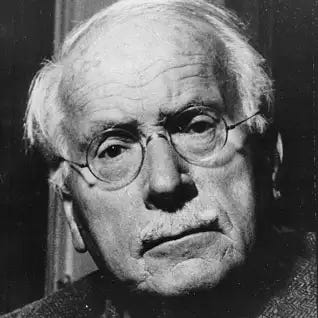Carl Jung on Intimate Relationships
"Where love rules, there is no will to power, and where power predominates, love is lacking. The one is a shadow of the other."
Paradoxically, individuation - embracing all of that which we are - cannot be achieved merely on your own. It takes two to tango.
Despite the pursuit of individuation being a pursuit to detach oneself from the collective, one cannot afford to cast aside the input of ‘another’ in this pursuit. Individuation, in a strange sense, requires input from the group.
In order to unify the opposites in your personality, you will need the opinions of others. The judgments of others offer you an opportunity to straighten yourself out.
And the potential for such harsh judgment reaches its peak in an intimate relationship. Your partner can love you, hate you, leave you. The idea is that by living with an intimate other, this can tell you things about yourself that would have been impossible for you to know without this experience. In all of us, there is an aspect of personalities that cannot be fully actualised unless we are in an intimate relationship.
Your commitment is connected to your ego. When he/she doesn’t text back, doesn’t call you back, you find yourself thinking things “come out of nowhere”. That’s the undiscovered self. The unconscious.
The trials and tribulations of a relationship like this bring out the best and worse in us. Therefore, the longer we spend in a close relationship with another, the more we get to know ourselves on a deeper level.
Jung:
“The unrelated human being lacks wholeness, for he can achieve wholeness only through the soul, and the soul cannot exist without its other side, which is always found in ‘You’.”
Our psyche cannot exist without those around us. And in order for our psyche to aid instead of impede us in our relationships, we need to be willing to integrate the traits that we don’t like.
And where do we find the traits that we don’t like?
In our projections onto others. In our projections onto our intimate relationships. Instead of detaching ourselves from these projections, we should assess them, attempt to understand them, and inculcate them as a part of our own personalities.
Jung:
“Wholeness is a combination of I and You, and these show themselves to be parts of a transcendent unity…. I do not of course, mean the synthesis of two individuals, but the conscious union of the ego with everything that has been projected into the ‘You.’ Hence wholeness is the product of an intrapsychic process which depends essentially on the relation of one individual to another.
The relationships to yourself, the Self, and another individual are the heart of individuation. Couples relationships are a particularly fertile ground for individuating as your most deeply rooted, personal needs and vulnerabilities are experienced. Your willingness to engage the intertwining worlds of inner and outer relationships simultaneously is the key for fully embodying your essence. Relationships are essential to individuation.”




